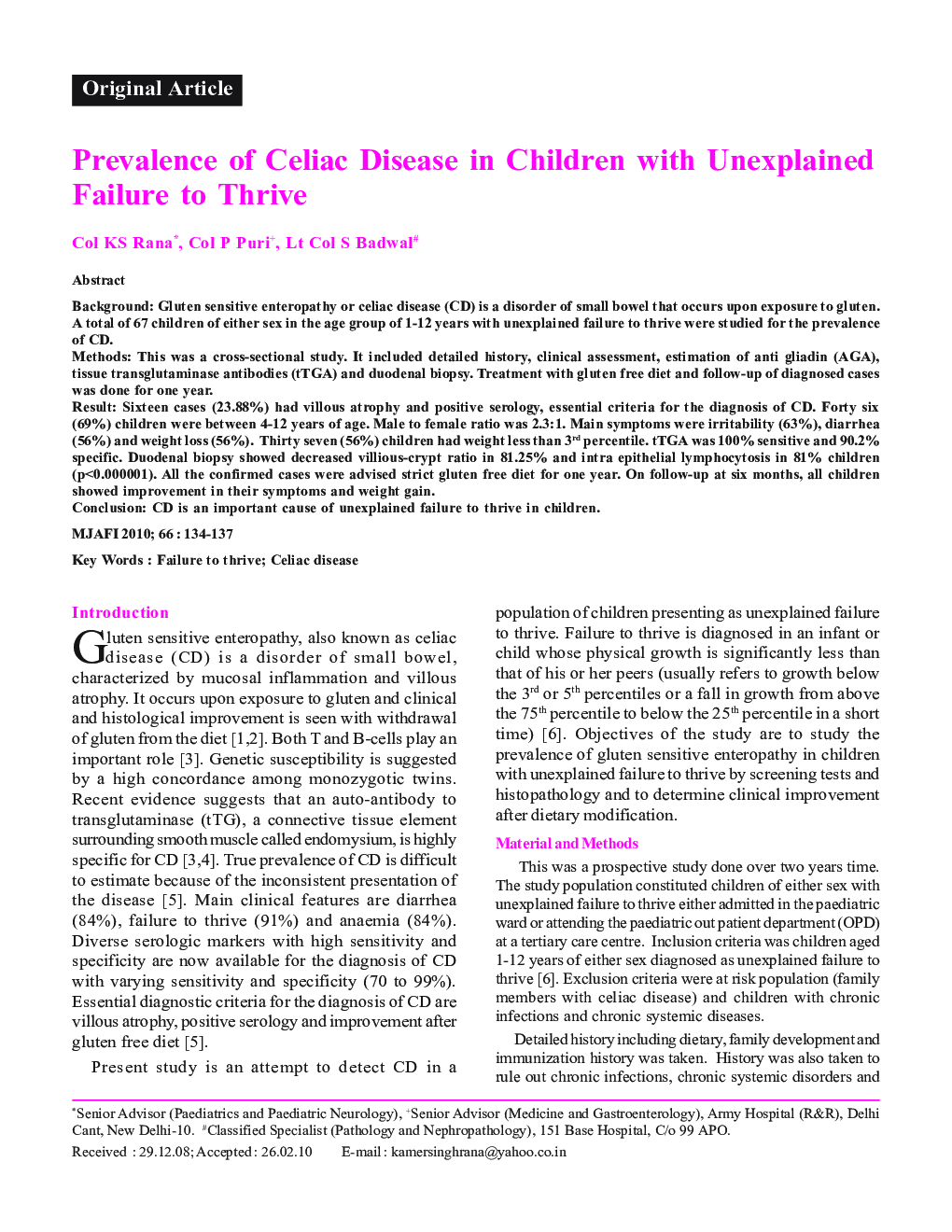| Article ID | Journal | Published Year | Pages | File Type |
|---|---|---|---|---|
| 3162265 | Medical Journal Armed Forces India | 2010 | 4 Pages |
BackgroundGluten sensitive enteropathy or celiac disease (CD) is a disorder of small bowel that occurs upon exposure to gluten. A total of 67 children of either sex in the age group of 1–12 years with unexplained failure to thrive were studied for the prevalence of CD.MethodsThis was a cross-sectional study. It included detailed history, clinical assessment, estimation of anti gliadin (AGA), tissue transglutaminase antibodies (tTGA) and duodenal biopsy. Treatment with gluten free diet and follow-up of diagnosed cases was done for one year.ResultSixteen cases (23.88%) had villous atrophy and positive serology, essential criteria for the diagnosis of CD. Forty six (69%) children were between 4–12 years of age. Male to female ratio was 2.3:1. Main symptoms were irritability (63%), diarrhea (56%) and weight loss (56%). Thirty seven (56%) children had weight less than 3rd percentile. tTGA was 100% sensitive and 90.2% specific. Duodenal biopsy showed decreased villious-crypt ratio in 81.25% and intra epithelial lymphocytosis in 81% children (p<0.000001). All the confirmed cases were advised strict gluten free diet for one year. On follow-up at six months, all children showed improvement in their symptoms and weight gain.ConclusionCD is an important cause of unexplained failure to thrive in children.
